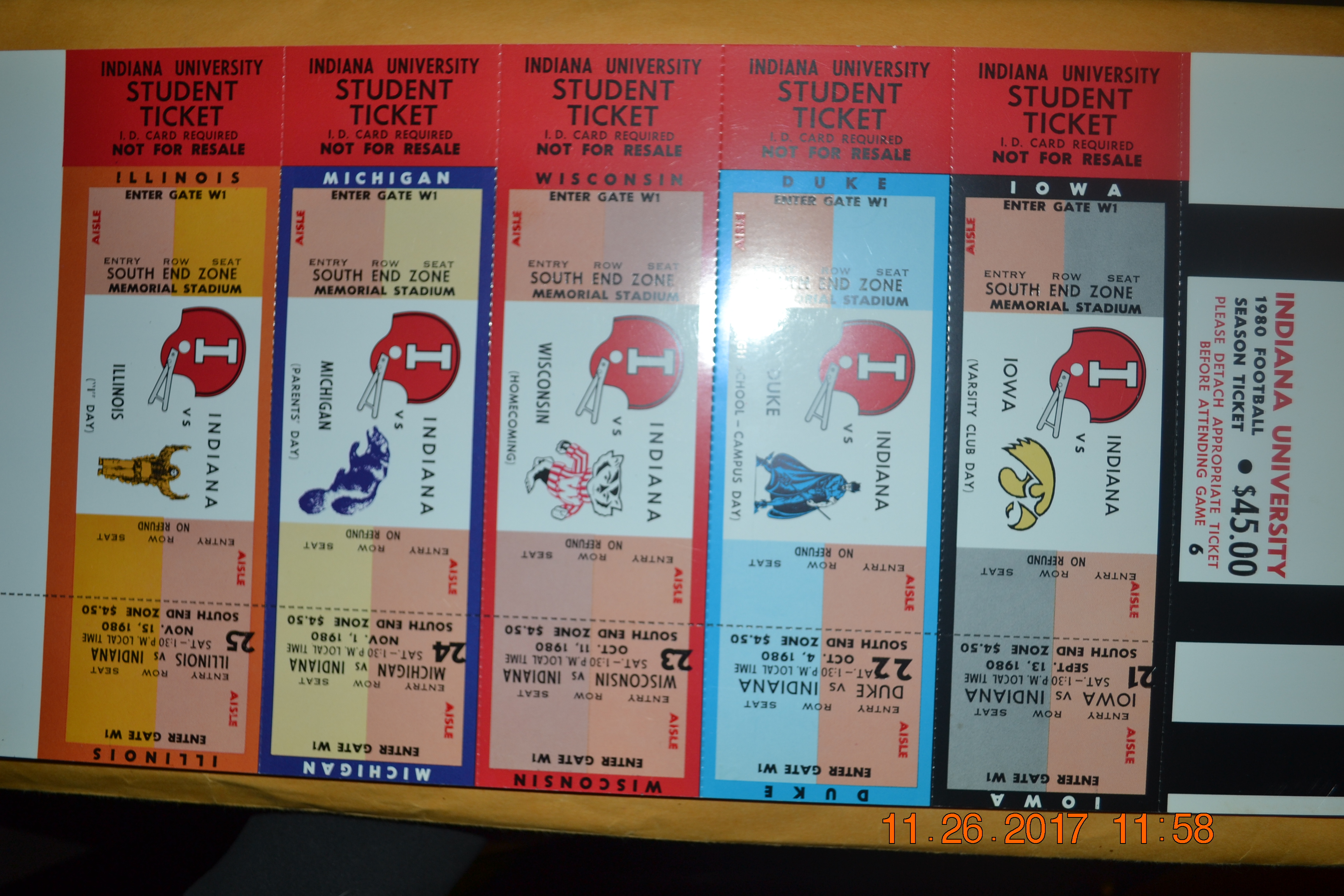
1980 Indiana University Hoosiers
$50.00
Out of stock
1980 Indiana University Hoosiers Student Season ticket sheet. (Proof)
Vs: Iowa Hawkeyes, Duke Blue Devils, Wisconsin Badgers, Michigan Wolverines, Illinois Fighting Illini.
Seating has not been printed on these.
Sheet is Not Perforated between games.
Gate, Stand and Aisle sections may differ from photo.
Perfect for Framing and or Gifting to your Favorite Indiana University, Iowa, Duke, Wisconsin, Michigan, Illinois fan/Collector.
The 1980 Indiana Hoosiers football team was an American football team that represented Indiana University Bloomington in the 1980 Big Ten Conference football season. In their eighth season under head coach Lee Corso, the Hoosiers finished in a tie for sixth place in the Big Ten Conference (Big Ten), compiled a 6–5 (3–5 against Big Ten opponents), and outscored their opponents by a combined total of 255 to 235.[1] The team played its home games at Memorial Stadium in Bloomington, Indiana.
The team's statistical leaders included quarterback Tim Clifford with 1,391 passing yards, Lonnie Johnson with 1,075 receiving yards and 66 points scored, and Nate Lundy with 459 receiving yards.[2] Several Indiana players also ranked among the Big Ten leaders in various statistical categories, including the following:
Ticketsheets.com
Your source for Collectible tickets and ticket sheets.
Support
Contact
@ticketsheets.com
+1-800
© 2024. All rights reserved.
Understanding the Differences in Tickets
-A full ticket is what purchaser of the ticket received from the team or other ticket seller (e.g., Ticketmaster).
-A ticket stub is a full ticket, including the rain check, after the audit or usher stub has been removed.
-An audit or usher stub is the portion that is often removed by the user. In recent years, tickets are scanned in many ball parks.
Therefore, the audit or usher stub is not removed.
-A proof ticket is generally a full ticket without seat numbers.
-A phantom ticket is a ticket printed for a post-season series and the series was never played because the team lost an earlier series in the post-season game sequence.
